Happy birthday Barbados!
The Caribbean island is 50 years old on 30 November - more to the point, it's 50 years since it gained independence from the UK.
There are a few things you may already know about this island of a little more than 280,000 people: it was a centre of sugar production, has produced numerous world class cricketers, and is the birthplace of iconic pop star Rihanna.
So as Barbados celebrates its golden year of independence, here are some more facts that you may not know about the island.
It's just like England, sort of
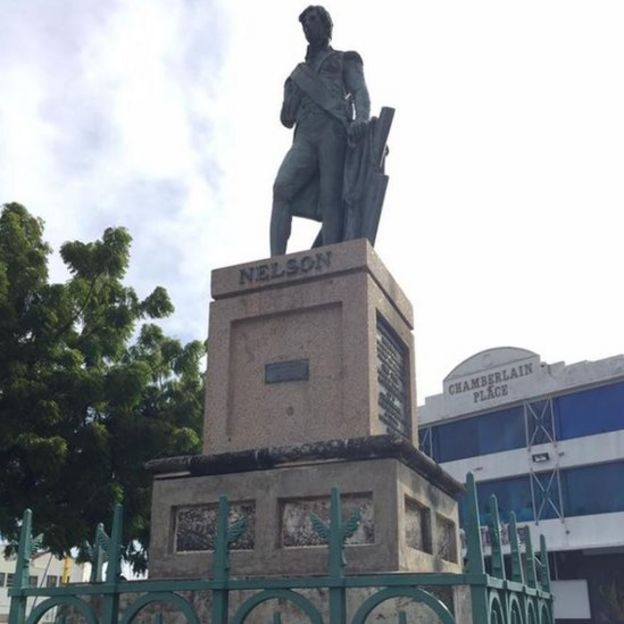
But it's not just place names that are left over from British colonial rule - Barbados has also kept the British judicial and education systems.
The predominant faith is Anglican, and Bajans, as Barbadians are colloquially known, drive on the left side of the road.
A political hero (and others who've done their bit in the US)
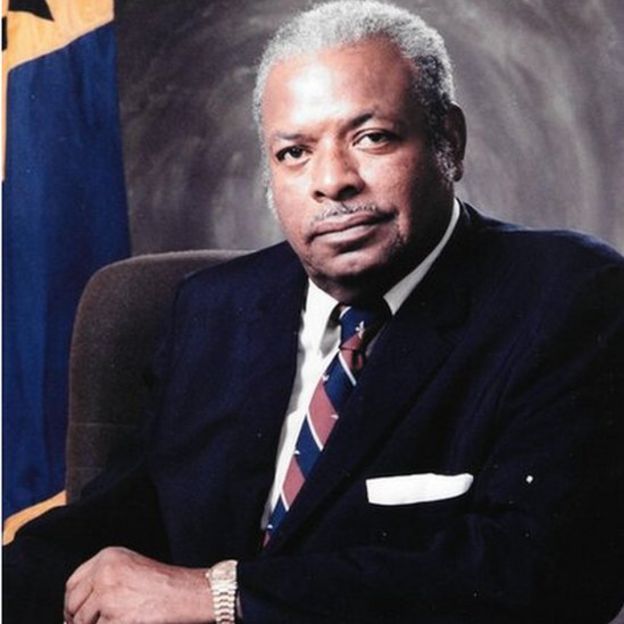 Image copyrightBARBADOS GOVERNMENT INFORMATION SERVICE
Image copyrightBARBADOS GOVERNMENT INFORMATION SERVICEThe date of his birth, 21 January, is a public holiday in Barbados and he is one of 10 Barbadian National Heroes.
(Another little fact for you: he shares a birthday with the first African-American US Attorney General, Eric Holder, whose father was born in Barbados; Mr Holder also narrates a new documentary film about Mr Barrow's life.)
Also, US politician Shirley Chisholm, who was of Barbadian descent, was the first black woman to run for president of the United States in 1972.
Flying the flag
Bridgetown and its Garrison is a Unesco World Heritage site, stemming back to the 17th Century. The garrison served as the Eastern Caribbean headquarters of the British Army and Navy.
On Independence Day in 1966, the garrison was the site chosen for the ceremony of the lowering of the British flag and the raising of the new Barbados flag that has, at its centre, the Broken Trident that signifies the break from British rule.
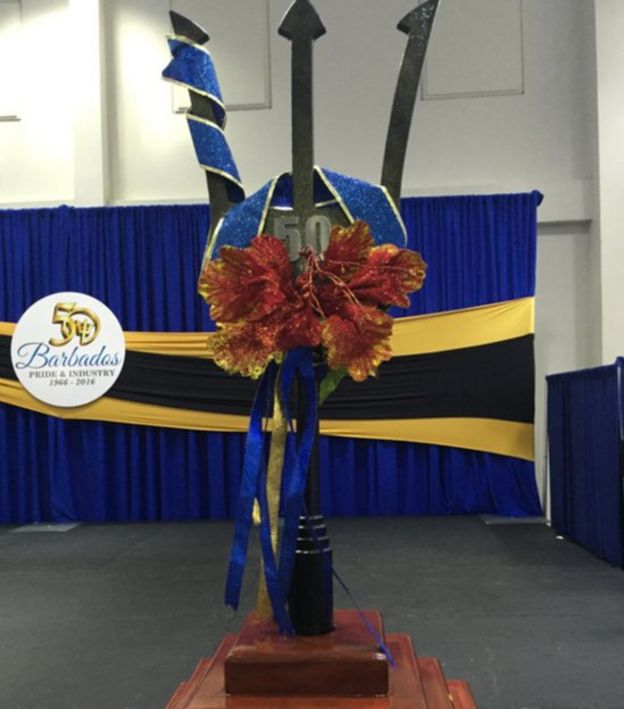
Good genes
Barbados is an island of "long-livers" having a high number of people over 100 years old. Per capita, it has the second highest number of centenarians in the world behind Japan.
Bajans pick a pot of pickled pork
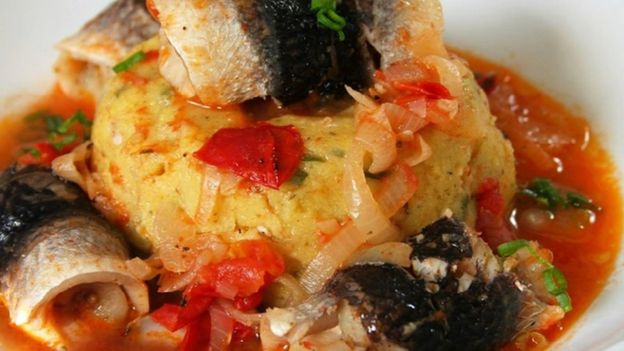 Image copyrightFACEBOOK/BEAUTIFULBARBADOS
Image copyrightFACEBOOK/BEAUTIFULBARBADOS
So it makes sense that Barbados is the birthplace of rum (though some neighbouring islands may disagree), first producing the spirit in 1703. There are more than 1,000 rum shops, similar to pubs or bars, all around the island.
Bajans also enjoy pudding and souse, made of sweet potato and pickled pork, particularly on Saturdays.
Ri-Ri (and that golden green-fingered touch)
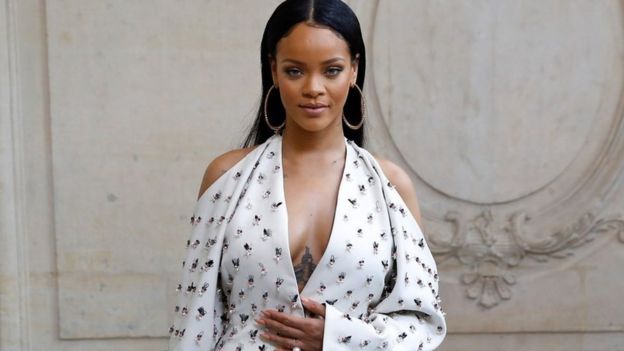 Image copyrightPATRICK KOVARIK/AFP/GETTY IMAGES
Image copyrightPATRICK KOVARIK/AFP/GETTY IMAGES
The Crop Over festival is held every summer, traditionally heralding the end of the sugar cane harvest. Islanders and visitors watch carnival costume and song contests, and take part in parades and street parties.
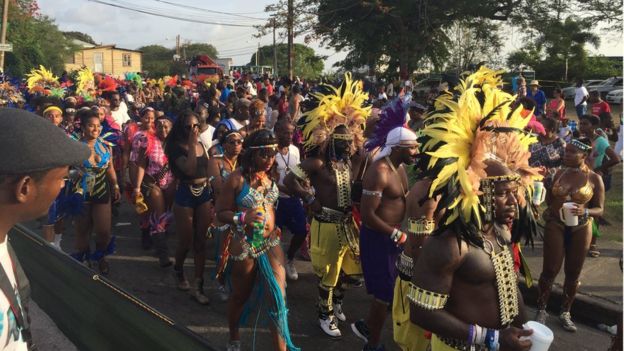
And green-fingered Barbadians seem to have the knack when it comes to horticultural competitions - they are regular gold award winners at the annual Chelsea Flower Show in the UK.
It's not just cricket
Cricket is the national sport and Barbados has produced a host of legends, along with the late commentator Tony Cozier.
The 3Ws of Frank Worrell, Clyde Walcott, and Everton Weekes; the openers Gordon Greenidge and Desmond Haynes; and the fast bowlers Wes Hall, Charlie Griffith, Joel Garner, and Malcolm Marshall, to name a few, all hail from Barbados.
One of the most revered Barbadian cricketers is all-rounder Sir Garfield "Garry" Sobers, who is also the only living national hero, having celebrated his 80th birthday this year.
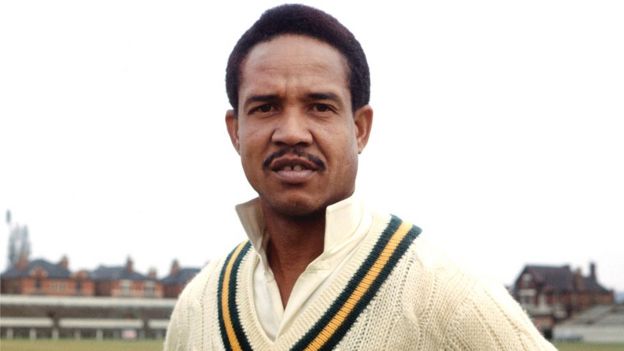
Oh, and if it wasn't enough for Barbados to have excelled in sport, it has invented one too - road tennis is a mixture of table tennis and lawn tennis.
So da's all fuh now - I gawn yuh hear?!
(I'm sure you can work out that it means: So that's all for now - I'm going OK?!)

Comments